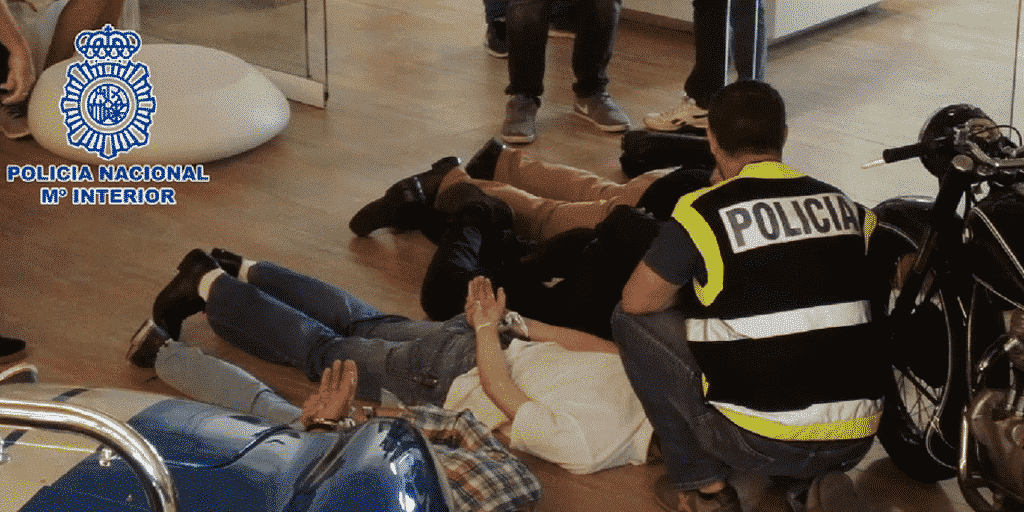A total of 79 arrests have been made following a National police investigation, “Beautiful operation”, into drug trafficking crimes, in what is thought to be the largest drug trafficking network operating on the Spanish Mediterranean coast, led by businessman Juan Andrés CP, who was detained at his home in Cabo de las Huertas.
In addition to the illicit trafficking of narcotic substances, many of the accused have allegedly laundered the profits they obtained.
Investigating judge, José Luis Calama, said that almost 3,800 kilograms of cocaine have been seized, the wholesale value of which is around 268 million euros.
As the investigation continues there are said to be a further six people being sought, who are unaccounted for.
The organization had four levels, at the top of which were Juan Andrés C. (leader of the Alicante branch), Sergio F. -alias Rubio- (leader of the Valencia branch), Jonas SF (leader of the Barcelona branch) ), and José CP -alias Costiña- (leader of the branch in Galicia).
The four were responsible for the management and direction of the entire criminal network. The judge explained that they were the ones who carried out “the negotiation, organization, planning and financing of large-scale shipments of cocaine from South America into Spanish and European territories.” In addition, they directed the main money laundering operations of the organization through business networks that were especially created for this purpose.
At an intermediate level were many other defendants who were responsible for the distribution of the drug on a medium scale. They led, according to Calama, their regional criminal groups made up of their trusted subordinates, but were always subordinate to the main branch themselves.
The judge also spoke of a third level, that of liaison, which would be an intermediary with the South American cartel that supplied the drugs.
Finally, the base level was made up of those responsible for the illicit drug trafficking and money laundering but on a smaller scale, as well as the responsibility for violent crimes related to that activity.
They were in charge of distributing the cocaine on a smaller scale and of carrying out violent activities connected to the main crime of drug trafficking, such as robberies from other traffickers, threats, extortion, settling of accounts, are also included at this level, debt collectors, kidnappings, assaults, murders, etc., depending on the level of the intimidation required.
In his report the judge dedicates an extensive section to the figure of El Rubio, “the true leader of the organization in terms of drug trafficking operations.”
He says that he provided the necessary infrastructure for cocaine imports through the Port of Valencia, and that he organized them together with the rest of the main branch.
Regarding Costiña, the judge pointed out that he played a fundamental role in organizing the transport of the cocaine from the point of origin in South America to Spain. He did so through freight and fishing boats that carried out the shipments in which the drugs were hidden.
He was also responsible for traveling to South America to negotiate with the cartel, after which he met with the leaders here in Spain to advise them of progress, according to the court ruling.
The judge said that Juan Andrés C. from Alicante, was the co-leader of the main branch and that he directed and organized the most important drug trafficking operations using a high-end car business in Xàbia as a cover.
The judge stated that at his home, in addition to documentation related to the investigated events, more than one and a half million euros in cash and luxury watches worth another million were confiscated. All were hidden in a room specifically prepared for this purpose, ” known as the panic room,” the report indicates.





